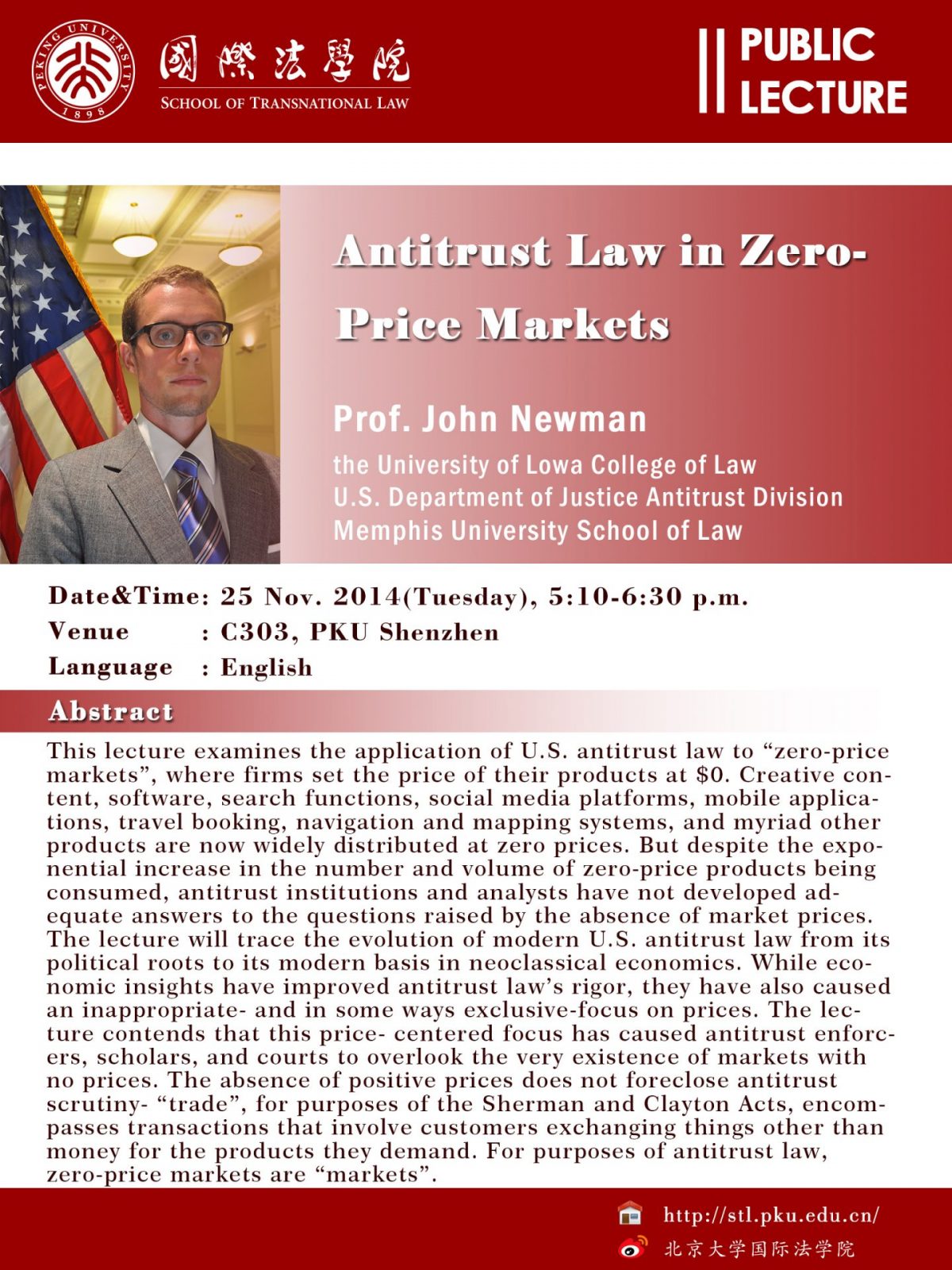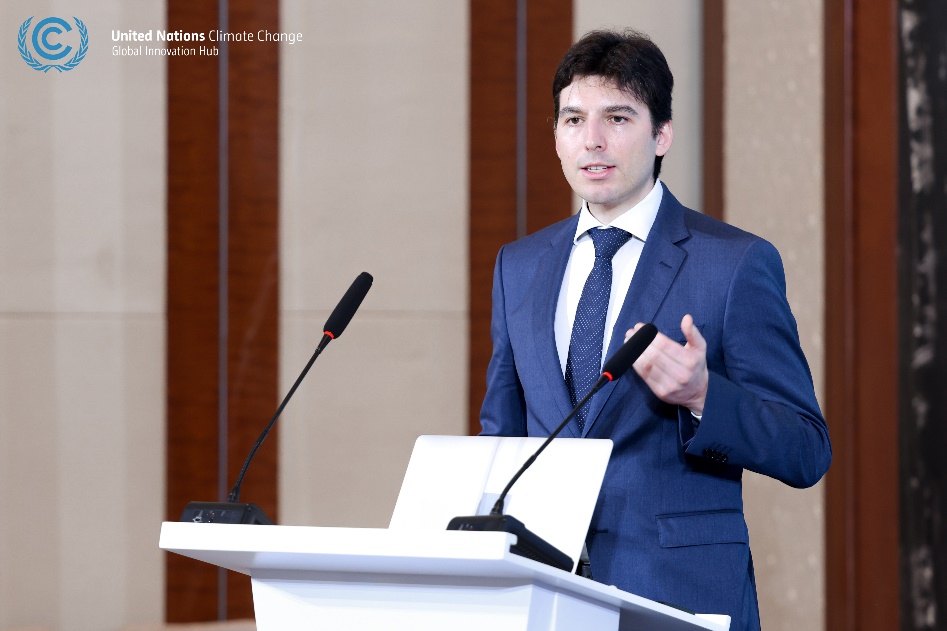Copyright © 2024 Peking University School of Transnational Law.

2014-11-22 Views: 186
Lecture details
Tuesday, November 25, 2014
5:10- 6:30 p.m.
C303, PKU ShenZhen
This lecture examines the application of U.S. antitrust law to “zero-price markets”, where firms set the price of their products at $0. Creative content, software, search functions, social media platforms, mobile applications, travel booking, navigation and mapping systems, and myriad other products are now widely distributed at zero prices. But despite the exponential increase in the number and volume of zero-price products being consumed, antitrust institutions and analysts have not developed adequate answers to the questions raised by the absence of market prices.
The lecture will trace the evolution of modern U.S. antitrust law from its political roots to its modern basis in neoclassical economics. While economic insights have improved antitrust law’s rigor, they have also caused an inappropriate-and in some ways exclusive-focus on prices. The lecture contends that this price-centered focus has caused antitrust enforcers, scholars, and courts to overlook the very existence of markets with no prices. The absence of positive prices does not foreclose antitrust scrutiny-“trade,” for purposes of the Sherman and Clayton Acts, encompasses transactions that involve customers exchanging things other than money for the products they demand. For purposes of antitrust law, zero-price markets are “markets”.


October 14, 2024
October 14, 2024
October 14, 2024
October 14, 2024
October 14, 2024